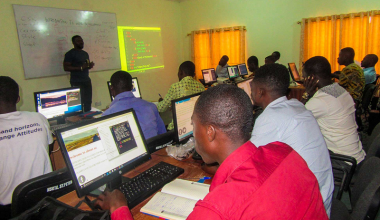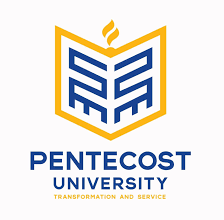If you’re interested in pursuing a career in social sciences, Ghana is home to some amazing and affordable universities that offer lots of courses for you to choose from.
Social sciences are a really important part of our society. They help us understand how people interact with each other and how they form communities, governments, and economies. And when you study social science courses in Ghana, you’ll learn about these topics in a really unique and culturally rich context.
In this article, we will talk about social science courses, their fees, and requirements as well as the universities in Ghana that offer them.
Table of contents
- About Social Sciencen Courses
- What qualifies as social science?
- What is a social science course?
- Is social science a good course?
- Which is the best social science course?
- How many subject do social science offer?
- Which university in Ghana offers social science?
- Social science course requirements
- Social science fees
- FAQs
- Conclusion
- References
- Recommendations
Social science is a broad category covering many different subjects, like psychology, economics, and political science. Basically, social science is all about studying how people live and interact with each other.
It helps us understand how different societies and cultures work, how people think, how economies are organized, and how politics are shaped.
Social science has its roots in sociology, which is the study of societies and the relationships within them.
But over the years, it’s expanded to include a bunch of other fields, like anthropology (which is about human behavior and society).
Read: Top 10+ Business Administration Courses in Ghana | 2024 Requirements
What qualifies as social science can be tricky to define, but in general, social science is about studying things involving human behavior, societies, and cultures.
This can include all kinds of stuff like the way people interact with each other, how economies work, the history of different societies, and how different cultures form.
So if you’re studying something related to how people live and interact, chances are you’re working in social science!
Social science courses in university is a class or program of study focusing on one or more of the social sciences. It could be a course about economics, psychology, anthropology, sociology, or any of the other disciplines that fall under the faculty of social science courses umbrella.
In these courses, students usually learn about the different theories, methods, and research techniques used to study human behavior, societies, and cultures.
They might also learn about the history of the social sciences, and about famous social scientists like Karl Marx or Sigmund Freud.
Social science can be a great choice of study, depending on what you want to do with it. If you’re interested in understanding the world around you and how people interact with each other, social science can be a fascinating and rewarding field.
It can give you skills that are valuable in a lot of different jobs, like research, policy making, marketing, and even management.
Of course, it’s important to think about what you want to do with your social science degree. If you’re interested in becoming a psychologist, for example, you might want to focus on psychology courses.
See the best social science courses in Ghana:
1. Sociology
Sociology is the study of societies, cultures, and social institutions. It’s like a big umbrella that covers a ton of stuff, like how people interact with each other in families, communities, organizations, and even entire nations.
Sociologists might study things like the impact of poverty on crime rates, how social media affects relationships or the way gender roles shape people’s lives.
As a sociology student, you’ll learn about theories and methods that are used to study human behavior and society.
Read: Psychology and Sociology Majors: What’s the Difference & Similarities?
2. Psychology
Psychology is a social science that’s like a treasure hunt for the secrets of the human mind. Psychologists are the explorers, using scientific methods to dig into the mysteries of our thoughts, emotions, and behaviors.
They want to understand everything from why we have dreams to how our past experiences shape who we are today.
You could say that psychology is like the code-breaker for understanding why people do the things they do, and as a psychology student, you’ll be learning the tricks of the trade.
3. Economics
For economics, think of yourself as a detective trying to solve the case of how money moves around the world. You’ll be exploring the ins and outs of how people and businesses make decisions, how governments manage money, and how different countries interact in a global marketplace.
It’s all about understanding the big picture of how money flows and what makes the economy tick.
As an economics student, you’ll learn how to use data and math to uncover patterns in the economy and make predictions about what might happen in the future.
4. Political Science
If you’re studying political science, you’re like an architect trying to figure out how to build a stable and fair society. You’ll be diving into the nitty-gritty of government systems, the power struggles between different groups and the impact of global politics on our daily lives.
Political science isn’t just about learning about laws and elections, though. It’s about understanding the people, ideas, and forces that shape our world.
As a political science student, you’ll be learning how to analyze policies and politics and even how to influence them yourself.
5. Anthropology
As an anthropology student, you’ll be examining human societies, both past and present, to understand how people interact, how they organize themselves, and how their customs and beliefs shape their lives.
You might be studying ancient civilizations, exploring modern cities, or spending time with indigenous communities to learn about their traditions.
But no matter what, you’ll be learning to appreciate the incredible diversity of human cultures and how they shape our world.
6. Geography
Geography might sound like it’s just about maps, but as a course of study, it’s a lot more than that. It’s about understanding the relationships between people, places, and environments.
You’ll be learning about how physical features like mountains and rivers shape the way people live and interact, how human activities like agriculture and urbanization can impact the environment, and how social, economic, and political factors can influence where people live and work.
Geography helps us understand the world around us and how we can make it a better place for everyone.
7. History
Studying history is a bit like reading the longest, most epic story ever. It’s about exploring the past to understand how the world has changed and how those changes have shaped the present.
As a history student, you’ll learn about ancient civilizations, epic battles, political revolutions, and the rise and fall of empires. You’ll also be diving into the stories of everyday people who have shaped history, from rulers and revolutionaries to artists and inventors.
But it’s not just about learning facts and dates. It’s about understanding how human actions and choices have shaped the world we live in today.
Also, read: Top Data Analytics Courses in Ghana Requirements and Fees | 2024
8. Linguistics
When you study linguistics, you’re like a language detective. You’ll be unraveling the secrets of how languages work, from the meaning of words and phrases to the sounds that make up speech.
Linguistics is all about understanding how languages are structured, how they change over time, and how they reflect the cultures that use them.
You might be studying the grammar of a particular language, how languages are related to each other, or how people use language in everyday conversation.
9. Communication Studies
Almost all communication involves more than just words, and that’s where communication studies come in. This field of study explores how people use language, symbols, and other forms of communication to connect.
You’ll be learning about how media, like newspapers and social media, shape our understanding of the world and how advertising and public relations influence our behavior. You’ll also be exploring the way we use nonverbal cues like body language and facial expressions to communicate.
Basically, communication studies help you become a better communicator and give you a deeper understanding of how information is shared and received.
10. Culturology
Culturology is about understanding how culture shapes the way people think, feel, and act. You’ll be exploring the history, art, and beliefs of different cultures, from ancient civilizations to modern-day societies.
Also, you will learn about how different groups of people communicate, express their identities, and interact with each other. And you’ll be thinking about big questions like how globalization and technology are changing our world and how different cultures have responded to these changes.
11. Management
This field of study is about understanding how organizations work and how to make them work better. It’s about learning how to lead and motivate people, how to make strategic decisions, and how to manage resources effectively.
As a management student, you’ll be exploring topics like business strategy, organizational behavior, and decision-making. You’ll also learn about different management styles and how they can be applied in different contexts.
Basically, management is about learning how to be an effective leader and how to make organizations thrive.
Social science covers a lot of ground, so there are quite a few subjects that fall under its umbrella. Here’s a list of all social science courses:
- Sociology
- Psychology
- Economics
- Politics
- Anthropology
- Geography
- History
- Linguistics
- Communication Studies
- Culturology
- Management
- Marketing
- Law
- International Relations
- Philosophy
- Education
- Criminology
- Demography
- Development Studies
- Cultural Studies
- Social Work
- Environmental Studies
- Media Studies
- Globalization Studies
Some would say that Economics can be tough, as it involves a lot of complex theories and mathematical models.
Others might say that Anthropology is challenging, as it requires a deep understanding of different cultures and languages.
And still others might find Philosophy difficult, as it involves a lot of abstract thinking and complex arguments.
That being said, some people love the challenge of economics and thrive on the complexity of economic theory. It just depends on your strengths and interests.
Also, read: 15+ Government Free Online Courses with Certificates In Ghana
Communication studies are the easiest science courses to learn. Unlike some of the other social science courses, Communications Studies doesn’t involve a lot of complex theories or mathematical models.
Instead, it’s focused on understanding the way people communicate and how to use different forms of communication, like language, media, and non-verbal cues, to connect with others.
It’s still a rigorous course, but it doesn’t require as much mathematical and analytical knowledge as some of the other social science courses.
Here are the top universities that offer social science courses in Ghana:
1. University of Ghana, Legon
The University of Ghana, Legon has different social science course options to choose from, depending on your interests.
If you’re into politics, you might want to check out their Political Science program. You’ll learn about how governments work, how different political systems are structured, and how political power is exercised around the world. You could even become a politician yourself one day, who knows!
If you’re more into the way people interact and behave, you could look into their Sociology program. Generally, the University of Ghana social science courses are some of the best in the country.
2. University of Cape Coast
The University of Cape Coast is one of Ghana’s top universities for social science, especially when it comes to education.
Their Bachelor of Education program in Business and Social Sciences Education is seriously solid, preparing you to become a social science educator.
You’ll be studying subjects like economics, government, history, geography, and business management, and you’ll have the skills to teach about all kinds of topics in social science, including religion, politics, and culture.
3. University for Development Studies
The University for Development Studies is one of the best in Ghana for social sciences, with a focus on pro-poor education.
Located in the vibrant town of Nyankpala, UDS is all about making a difference in the world.
With a faculty dedicated to disciplines like social work, political science, geography, history, religion, and psychology, you’ll get to explore all sorts of issues facing society.
And with a bunch of degree programs on offer, you’ll be able to focus on what interests you most. And get this, UDS is also rolling out postgraduate degrees, which means you’ll have the chance to dive even deeper into the social sciences.
Also, read: Accra Technical University Courses and Fees | 2024/2025
To study social sciences in Ghana, you need six subjects, including English Language, Mathematics, Integrated Science/Social Studies, plus three elective subjects relevant to your chosen program.
The grading system is:
- WASSCE: A1, B2, B3, C4, C5, C6
- SSSCE: A, B, C
- GBCE: A, B, C
For Diploma in Basic Education and 3-year Post Secondary Teacher’s Cert holders. They can apply for degree programs in Education, assuming their qualifications are up to scratch.
For GCE Advanced Level holders; if you have passes in three subjects, one of which is Grade D or better, and you’ve got credit passes (Grade 6) in five GCE Ordinary Level subjects including English Language, Mathematics, and a Science subject (for non-Science students) or an Arts subject (for Science students), you’re good to go.
For HND holders; if you have at least a Second Class Lower Division from a recognized institution, you might be eligible for admission into level 200 or 300 depending on your subjects. But, you need to have at least two years of post-HND work experience.
For Baccalaureate holders and other Foreign High School Diploma holders equivalent to WASSCE; your certificates need to be evaluated by the National Accreditation Board. You’ll also need to have your high school certificates/diplomas translated into English if they’re not already in English.
For Mature Students; if you’re 25 years old or older, you can apply as a Mature Student. But, you’ll need to prove your age with a birth certificate or other legitimate document, provide an introductory letter from your employer or other proof of employment, and pass the University’s Mature Entrance Examination.
Social science school fees in Ghana can vary, but generally, you can expect to pay around 1,856.00 Ghanaian cedis for a social science degree at the University for Development Studies (UDS) or the University of Education, Winneba.
FAQs
Psychology
Psychology is versatile, with jobs in healthcare, education, business, and government.
Usually, it’s Arts and Social Sciences.
Yes, Public Administration is a social science.
Business Administration is part social science, part commerce, with a focus on leadership.
Conclusion
When it comes to choosing a social science course, there are lots of options, each with its own strengths and weaknesses.
But whichever path you choose, one thing’s for sure: studying social science in Ghana will give you a unique perspective and skill set that’ll come in handy in all kinds of careers.
References
- en.wikipedia.org – Social science
- gotouniversity.com – Universities for social sciences in Ghana
- research.com – Social Science Courses






